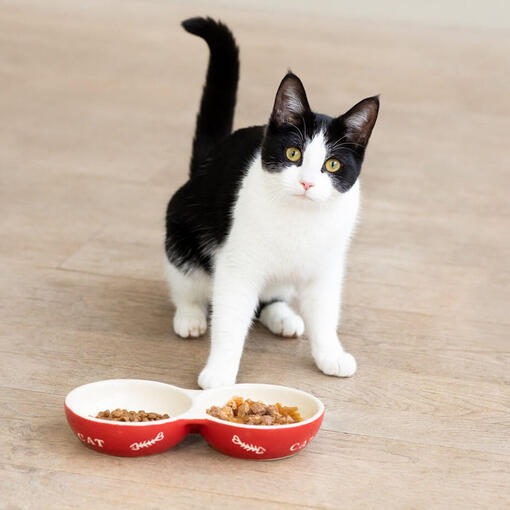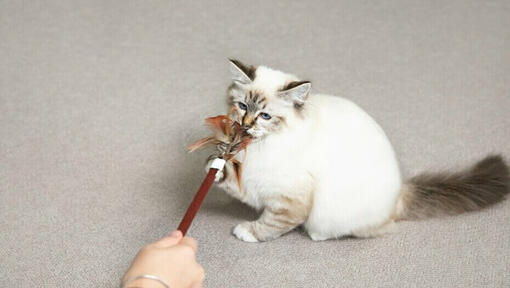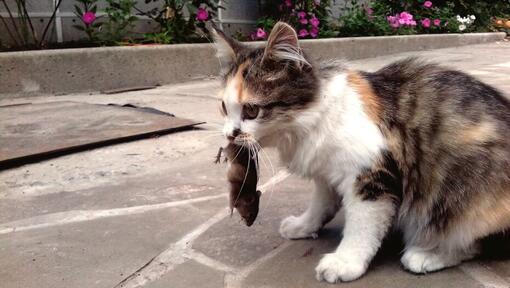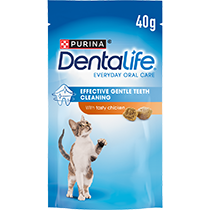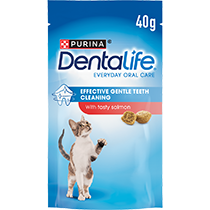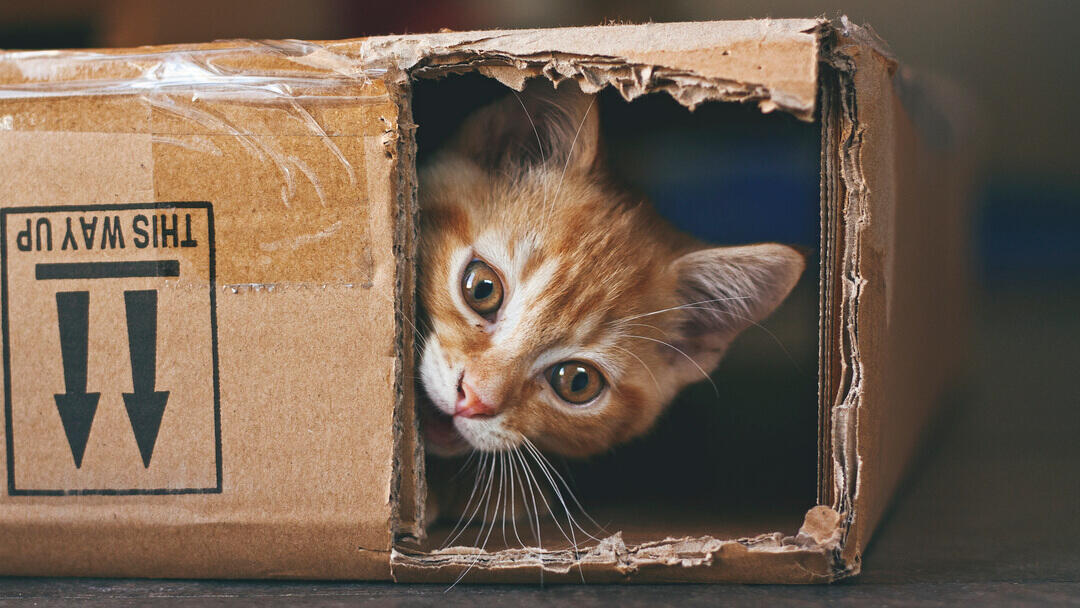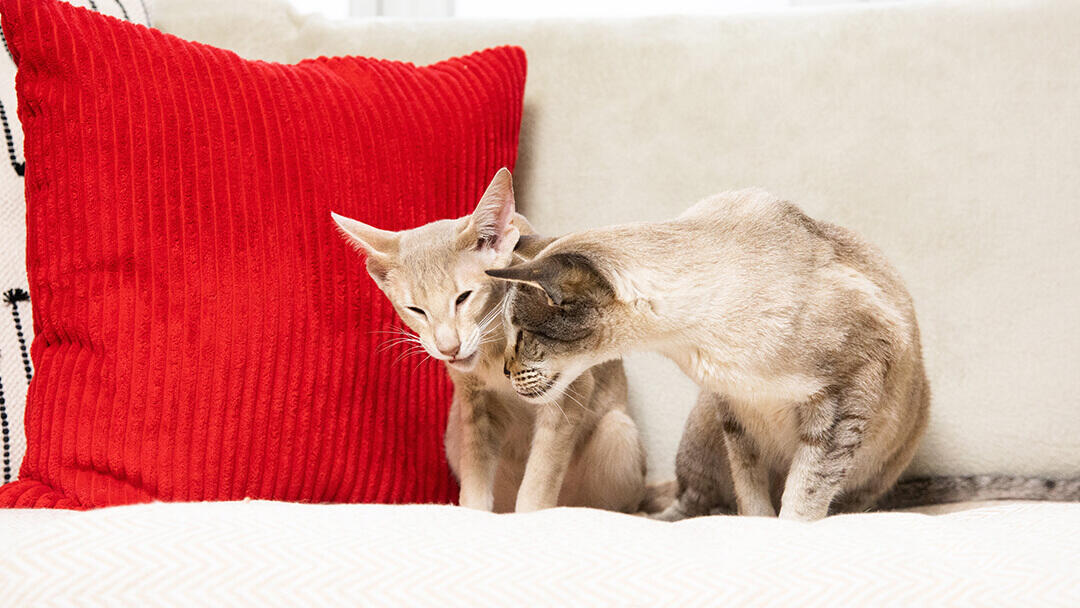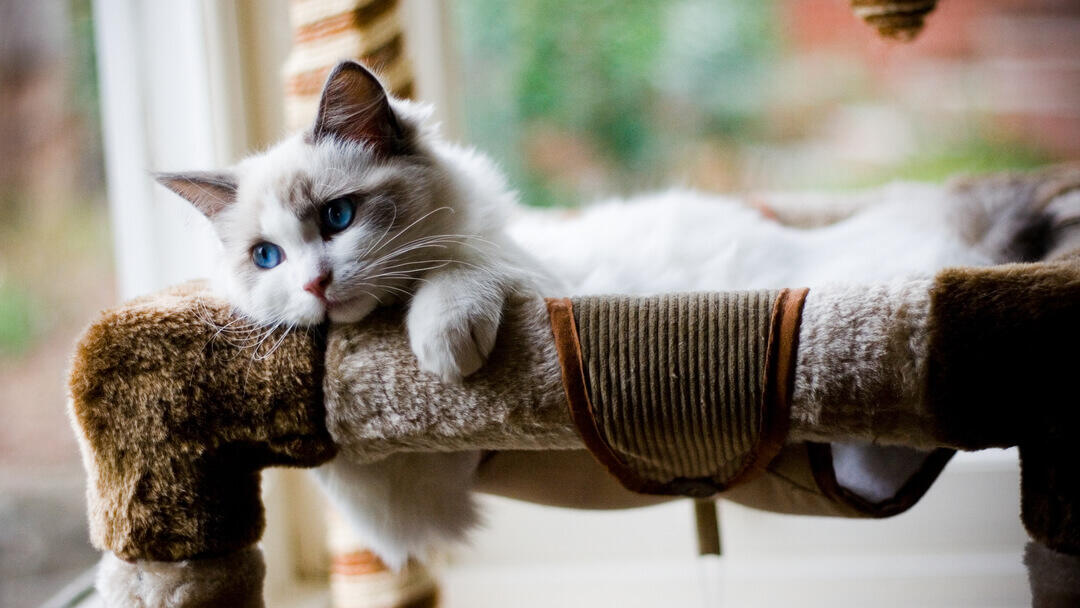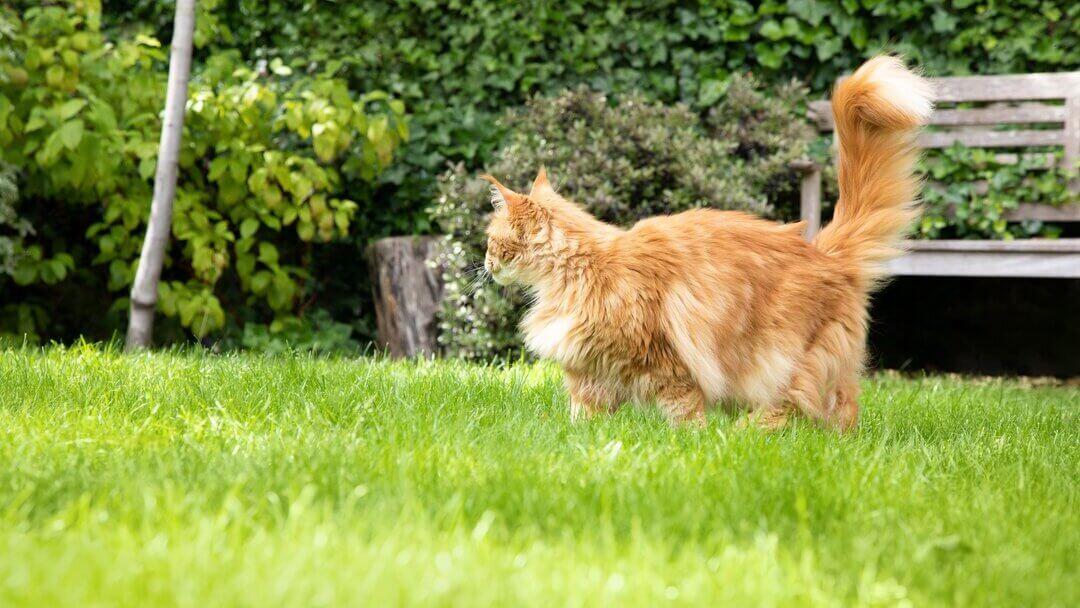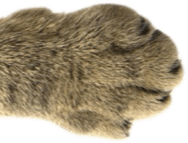

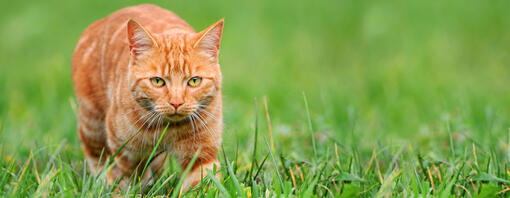
If you have a cat that goes outside, you’re probably no stranger to having dead creatures turn up on your doorstep. While some cats may be more adept hunters than others, you may still find yourself wondering about the reasons behind this hunting behaviour.
If you have an outdoor cat, it’s incredibly likely that you’ve had dead mice or birds turn up on your doorstep. This may range from just the occasional delivery to something that you’ve come to expect each and every morning.
This tendency to bring us hunting gifts has baffled cat owners across the globe and many find themselves wondering about the reasons behind cat hunting behaviours. This is especially true when your cat is regularly fed and given all the attention and fuss they could possibly wish for! If you have a cat that’s an adept hunter, it helps to understand why they hunt.
Why do cats hunt?
Historically, cats weren’t kept as pets and fed by loving owners. They had to provide for themselves and hunt for their own food, like their big cat cousins such as lions and tigers. A limited amount of prey meant that only the most successful hunters survived and reproduced, so your four-legged friend is descended from hunting-savvy cat ancestors.
Today, cat hunting is more about fun and entertainment. The mere sight and sound of prey triggers your cat’s hunting instinct which is hardwired into their brains. Quite simply, your cat is powerless to resist the flapping wings of a bird or the scuttling feet of a small mouse.
How do cats learn to hunt?
Cats learn to hunt the same way most mammals learn things – from their mother. Hunting is a great skill which needs to be learned first, which is almost always taught by their mother or through play with their litter mates.
As your cat grows older, they may take this new found skill outside and eventually start bringing prey home, which may be anything from mice and birds to larger prey such as rabbits. If you have an indoor cat on the other hand, they may display these cat hunting behaviours through playing with their toys.
Cat hunting strategies
Generally, cats tend to use three different strategies for hunting their prey, these are as follows:
This type of cat hunting strategy begins with them crouching and intently focusing on their prey. They’ll patiently wait somewhere they can’t be seen, then leap and claim their prey at the perfect moment.
The stalk and pounce technique involves your cat finding their prey, crouching low to the ground and then slowly stalking toward them. This stalking may involve stopping several times on the approach – sometimes with one paw in the air to remain completely still – in a bid to not alert the prey. Once your cat’s in striking distance they’ll gather their rear legs beneath them then leap and seize their prey.
Some cats may prefer hunting fish (usually in your own pond) as opposed to land prey. To fish, your cat will take their paw and scoop and flip the fish out of the water. Alternatively, if you have a cat breed that’s less afraid of water such as a Maine Coon, you might actually spot them wading into the water to grab the fish with both of their paws.
Why do cats play with their prey?
After catching their prey, you may witness your cat play or toy with it. Battersea suggests that this behaviour may be due to your cat trying to confuse the prey and tire them out, thus making it much easier to kill and reducing their chances of getting injured.
Is your cat hunting because they’re hungry?
Many owners will assume that the reason behind cat hunting is because they’re hungry, but this isn’t always the case. According to International Cat Care, if cats were to rely only on their own catches to sustain them they’d need to catch around 10 – 20 critters a day which is a huge amount, especially considering on average each hunting attempt has less than a 50% chance of success. Due to this high amount, cats have evolved to try and hunt whenever they can, regardless of whether or not they are hungry, so they’ll try and catch prey whenever the opportunity presents itself.
Is my cat bringing me gifts?
When a dead mouse or bird turns up at our doorstep, it’s easy for us to assume that they’re bringing us a gift, but is that the case? Live Science suggests that it could be, as with wild cats they provide for their young and bring them food whilst also teaching them valuable survival skills. The majority of our domestic cats however are neutered and so won’t provide for their young, so they may transfer these instincts to their owners instead.
Alternatively, they may be bringing their spoils home to potentially eat later. If they do this, it demonstrates that your cat feels happy and safe in your home – secure enough to even leave you with their potential meal to look after!
How to stop cats hunting
First things first, you should never punish your cat for hunting as they’re only expressing their natural instincts. However, if you have an adept hunter in your home, we understand that you may be fed up with your home being filled with the (delicious) scents of your cats’ spoils. There are some methods you can use to discourage cats from hunting.
1. Redirect hunting instincts through play
Redirecting your cat’s hunting instincts through frequent play is one of the most effective methods. Play provides mental stimulation for your cat and helps to satisfy their hunting desires. The best toys to use for this purpose are feather teasers (or basically any toy which will move). This type of play is especially important for indoor cats as they’re not given the opportunities to hunt naturally, which may cause problems in your home such as biting or pouncing on your feet or being destructive.
2. Get them a collar with a bell on it
Break-away collars with a bell fitted on them have proven to be very effective at stopping cats hunting. A recent study by the RSPB found that cats with a bell on their collar catch 41?wer birds and 34?wer mammals than those without one. If you are considering a collar with a bell, always make sure that it’s a safety one which will quickly release if your cat gets caught on anything.
3. Make sure they’re getting enough food
For cats that hunt due to hunger, you can reduce the amount they do this by ensuring that they’re fed a nutritious and balanced diet. You could also try feeding them smaller meals at more frequent times throughout the day.
4. Keep them inside at high activity times
It’s worth knowing that cat’s hunting efforts are likely to be more effective around dawn and dusk, as these are the times small mammals and birds are around, as well as after a spell of bad weather when they’ll probably come out to feed. If you want to limit the number of successful hunts, it’s a good idea to keep your cat in during these times.
Now you know all you need to know about your cat’s hunting behaviours. Looking to find out more about kittens and cats? Read our guide to cat history and instincts.



